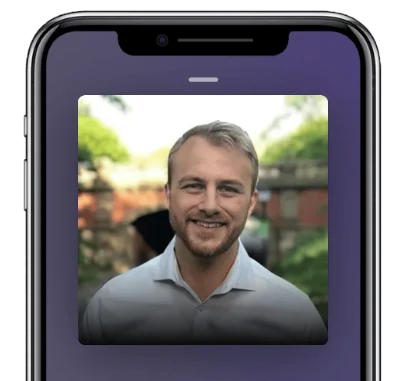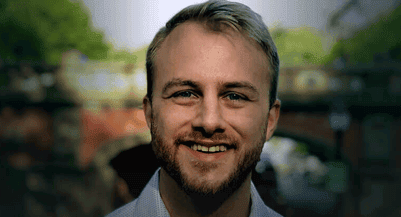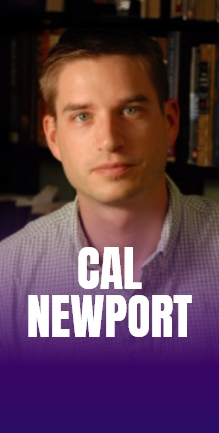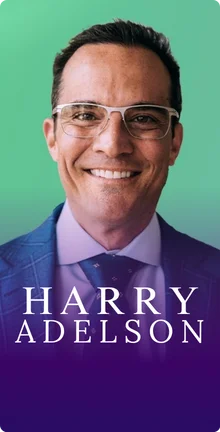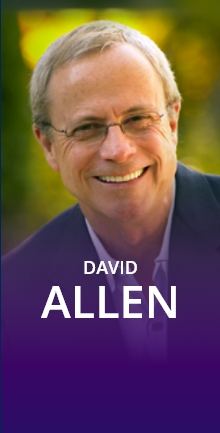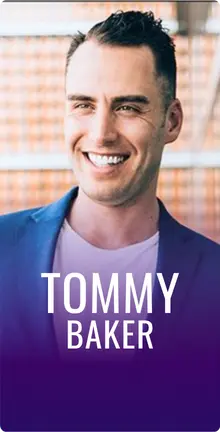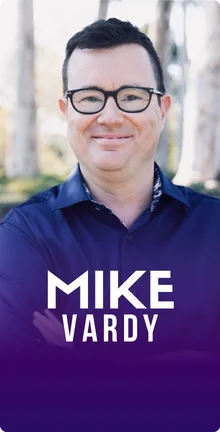It is good to be here. How are you?
I’m doing great. I love your book. I am not finished with it yet. I am talking about The Productivity Project. I know you also have Hyperfocus. I love your approach of trying everything. I am a biohacker. I experiment with my biology. Everything about my physiology and so forth is available for me to experiment with. I just did stem cell therapy. I did 40 years of Zen, which is a neurofeedback deep dive into that. That is one of Dave Asprey’s companies.
Where do you go for stem cell therapy? That sounds curious.
I went to Dr. Harry Adelson who was a guest on the show. He is Dave Asprey’s stem cell doc. He keynoted at Dave’s conference, the Bulletproof Biohacking Conference and I was impressed. I had him on the show. After having him on the show, I decided I wanted to go get stem cell therapy and so did my wife, Orion. She also has a podcast. She had Dr. Harry on her show as well, so we went and did the procedure. It’s definitely worth reading. If you are interested in stem cells and you should be, everybody needs stem cell therapy or at least getting stem cells harvested and banked for a rainy day because you’ll never know. It is the best time to plant a tree twenty years ago. The second best time to plant a tree is now. Get your stem cells banked and you, Chris, need to do that too because you will stop the clock at the day that you get those harvested. They will culture and grow more and then freeze them for a rainy day. It is like a time machine.
I have never heard about this before but now my interest is piqued. You have to give them. Is it gross? Do they send you like a kit or do you go in?
You go in. I would recommend that you get put under for it. Do you know Dave Asprey, the Bulletproof Coffee?
Our mind is for having ideas, not for holding ideas. Share on XI do not know him personally, but I know his work.
He did a Facebook Live while he was getting stem cells extracted from his bone marrow and his pelvis, and he passed out in the middle of the Facebook Live.
That is bound to go viral.
I do not know if it went viral but I am sure it got plenty of views. I was under for it and I hate needles but it is not that big of a deal.
What data do they give you after or is it data?
It is about getting stem cells reinjected into different parts of your body for longevity and for revitalizing your skin on your face. I am very passionate about it as you can tell.
Do you want to hear my favorite question? While we are on the subject of me interviewing you. This is my favorite question that I ask a lot of people. The answers are always wonderful for people who are looking for book recommendations. I will put you on the spot. What is the most impactful book that you have ever read?
Who is it by?
That I do not remember but I remember that there are five tools in the book. There are two psychologists who wrote the book and they were very results-focused and not focused on getting a lot of talk therapy or whatever. They just wanted to get the result for the client as quickly as possible. They found empirically that these five tools were the most impactful in getting near immediate result. One of those tools is you visualize your fear as a cloud of dust or smoke or something that you can run, not just towards but through, and get to the other side. It’s very powerful. There is another one where you visualize a person you are in conflict with and you are full of love and grace and everything from the universe. Then you visualize flowing that into the person that you are in conflict with that you visualize them in front of you. Then you fill it back up with love and grace from the universe. After doing that exercise with somebody in my family that I had not spoken to for two decades, I decided to give her a call and she is now back in my life. I feel so much better because of it. She changed a lot. It is very impactful. How about you? What is your favorite book?
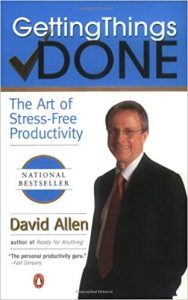
I love this question. This is my favorite question to get book recommendations from people. The thing is you have to ask people who read a lot because I find that when somebody recommends a book to me, usually they do not read a lot of books. Maybe they read five, ten books over the course of the year. They usually name one of the most recent books that they have read. They do not have a large sample size of books that have impacted them. When you frame it in that light, “What is the most impactful book that you have ever read?” It is helpful because it is what changes somebody’s behavior and how they live their life. If you have all these book recommendations from all these smart people nudging you toward living a better life, it is a fun way to go about doing things. Man’s Search for Meaning comes up a lot which is next on my to-read list. The one for me is probably Getting Things Done by David Allen. He has become a friend of mine since we are both in this productivity space. The idea behind it is that our mind is for having ideas, not for holding ideas. It is full circle to the topic of the interview now. It is the first productivity book about attention management that I read.
It brought that idea to life that there are a lot of books about time management, almost too many but very few about how we can focus better. How we can manage our attention and as well our energy, how we can use these more holistic ingredients to accomplish more every day. Productivity is not about doing more. It is about doing the right things deliberately and with intention. It has the results-focused mindset as well. It allowed me to feel and act differently in a way that you feel productive, you feel less stressed out. I said, “I am going to experiment with this topic for as much time as I possibly can.” When you see productivity as just being about intention, it is the backdrop against which we live our lives. Why would not we want more of that? It is the impetus that got me so passionate about this idea of productivity way back. Probably closely after it first came out a long while back but it is still the passion through to now. It is a highly recommendable book.
It is in my top ten as well. I read it well over a decade ago. It made a huge difference in my life. The concept of having a trusted system. That your brain is meant to be a factory and not a warehouse and to get stuff out of your head into that trusted system was a godsend for me because I would have things on backs of envelopes, on Post It notes, in various Word documents. It was a colossal mess. Then the context for each to identify whether it is a next action or it is a project, that was a huge breakthrough for me. To think about what is the deadline or a time frame for it, the priority and most importantly the context, “Am I going to do this at my office or at my home? Am I going to do it while I am on errands? Is it a phone call? Is it an email?” That was hugely beneficial because I get overwhelmed at long to-do lists and to be able to filter by context and say, “Show me the errands in my massive to-do list.” I have an insane to-do list with thousands upon thousands of next actions. I’m prolific with ideas so I always want to get them down. Many of them should go into Someday Maybe, which is an idea from Getting Things Done is the Someday Maybe List.
It is the Carly Rae Jepsen song. There is a joke there but I cannot find it.
If there is a task that you don’t want to do, that is probably a signal that the task is important. Share on XHonestly, I like that song, Call Me Maybe.
It is very good. Carly Rae Jepsen is very underrated as a musician. Taylor Swift is very underrated. Justin Bieber gets a lot of hate but he is very talented as well.
He is extremely talented and he is a brilliant marketer. The campaign that he put together for his single, What Do You Mean? Do you know about this?
No.
It was so genius. He got all of his big celebrity friends to do a countdown for 30 days. Ellen DeGeneres, Ed Sheeran, anybody who is in Hollywood and so forth. They would do these cryptic messages on Instagram and Facebook and they’d hold up a sign, a white sheet of paper that said something like, “Day 29, #WhatDoYouMean?” I was like, “What is that? What is that about?” Then you’d see it again on somebody else’s timeline or feed and it was like, “Day 26, #WhatDoYouMean?” Sometimes they perform little video things. Ed Sheeran did this weird rendition of the song, but nobody heard the song yet, so they do not know that this sounds nothing like the song and you are starting to get the idea like, “This is a song.” There is a song that is coming out in less than 30 days. He broke records with that single in terms of the number of downloads. I forgot exactly what the record was.
The streams or whatever it is that they are counting now.
It was an impressive record that was broken.

Do you know what my favorite campaign of all time is? I do not purchase this product, but once I saw the campaign, I thought, “This is genius.” It was Shreddies. When they came out with the new Diamond Shreddies but they turned the Shreddies around a little bit on the box and was downwards. It is still a square but they called it the new Diamond Shreddies. I remember going out and I thought, “I need this box. I do not know why but somebody in the marketing department needs to be rewarded for this campaign because it is so stupid that it wraps around itself to become brilliant again.” I cannot stop thinking of it. Every once in a while, it is one of those ideas I think about, “If I could come up with one idea in my life that is half as good as Diamond Shreddies, I will have lived a good life.”
I do not even know what Shreddies is.
What is wrong with you? It is a breakfast cereal.
I do not need that junk.
Nobody does. You don’t know what Shreddies is? The breakfast cereal. It is brown. It is made of wheat. It is a square. It is a small wheat cereal. You are going to get so much hate mail or maybe I will that you do not know what Shreddies is. You live in the United States, right?
Yes, and I do not eat that junk. Not that that particular brand is junk, I do not know their brand but processed food is the devil, especially breakfast cereals because the amount of sugar that is in there is the exact opposite of what you need to start your day.
Forget about the cereal though, focus on the campaign. You have got to admit, it’s pretty good.
You are never going to grow if you’ve never experienced a level of stress. Share on XIt is pretty good, I guess. I’d have to see it. I am sure I could outdo you with an even better campaign. I just would need to think about it for a minute. Anyways let us move on back to productivity. The idea of experimenting and biohacking in productivity dovetail, especially for you because you treated your own psychology as a test group. You would run these different kinds of experiments. You did experiments for how long?
A year and through now. Before we delve into that, I should say they all had an end of one. They are very subjective, Statistically significant only for me. Nobody else on the planet can glean lessons from these. Not only are they not scientific. They are scientific for an end of one, but they were a vehicle through which I could share a few curious lessons that I uncovered but also use that as a vehicle to chat about the research around things like meditation and how things like water affect our productivity. Working out, exercise, our wakeup time and what information we consume. It was fascinating on that level. It is worth keeping in mind that it is an end of one. Most of them also probably would not pass most ethics committees but that is another tangent.
Because you did stuff that was unkind to your body like sleep depriving yourself for a period of time.
Things like that. I remember watching 296 TED Talks in a week. 70 hours of TED Talks forcing myself to drink only water for a month, cutting out all the alcohol and everything else like junk. I do not drink that junk as you would say. I’m trying to cut my body fat down by ten to fifteen pounds while gaining ten or fifteen pounds of lean muscle mass. Becoming a total slob for a week, ordering takeout every day, getting a little physical activity, waking up at [5:30] every morning. Things that some crazy people might do by default but that I did not want to. All of them were essentially designed so that I could push on the limits of how much I was able to do, both mentally and physically, every single day. Meditating for 35 hours over the course of a week, using my smartphone for an hour a day for three months, working 90-hour weeks. Living in isolation for ten days. These fun things that I continue to do for this day at the behest of my fiancé and my friends. Still, they are fun. You get to discover things about the world and about yourself.
How is sleep deprivation and putting yourself in isolation for ten days, how is that fun?
It is fun in a weird way. It is like one of these ideas that wraps around on itself. Vacations are never perfect when you are on one, but you remember them as perfect. That is like these experiments for me. They are always hell when I am in the middle of them, but I always look back and think, “I am happy I did that thing overall because it might make me grateful for the life that I have. It might reinforce the good habits that I already have.” Being a total slob for a week or ten days, I ordered takeout multiple times every day. I showered only twice that week. There were piles of takeout containers in the living room. It is a bit disgusting. I didn’t work out. I did all those things and something like that. The first couple of days of that were really fun because I do not splurge on bad food that often. I got to order pizza. I got Indian food. Burger King, there is one a few blocks over from where we lived at the time and it was wonderful. Eventually you get to the middle of the week where you think, “I want a big plate of salad right now but I have to order fast food because of this experiment.” You begin to become grateful for your good habits and sometimes it is that part of it too.
You mentioned you were wax nostalgic about these things that were horrible and painful at the time. After the fact, that part of it fades. The way your brain works is you do not remember the pain, which is a very good thing. I am so glad that, for example, I did a hair transplant years ago because I look completely different now. I look much younger and what a difference that made. It was living hell at the time. I was awake for the whole thing. They cut a strip of skin from ear to ear to the back of my head and they removed it. I had to hang out for a while with that skin missing from the back of my head while they went and counted all of my hair follicles one at a time to make sure that they had enough, “We did not get quite enough. We need to do some more cutting.” Then I hear them cutting away back there to get more skin. I do not even like needles. I would pass out practically when I get my blood drawn. I was awake for this. Thank God I do not remember the pain afterwards. It was hellacious after the drugs wore off for several weeks. Not fun at all. That is all a distant memory. I do not even know what the pain was. I have some recollection that it was painful, but I do not have any real recollection of the pain itself.

We have two selves, the experiential one and the reflective one. Stress is a fascinating thing in this way. It is like running towards that cloud of fear. I have made it a habit of running towards any amount of discomfort in my life. If there is a task that I do not want to do, that is probably a signal that the task is important. If there is a conversation that I do not want to have with somebody, that is probably a signal that I should have that conversation. I have made a habit out of running towards this discomfort and these situations that some people might consider stressful. It is exactly like you were talking about where there is the experiential self, which thinks all of this is terrible. Then there is the reflective self where if you reflect back on your life and you think, “If I could eliminate every source of stress in my life, would I?” Most people would answer, “No way,” because that is where all the meaning and the growth came. You are never going to grow if you never experienced this level of stress. I do not think you need to have a hair transplant to tell yourself that. It is a critical thing to at least incubate a little bit. Where is the discomfort in your life? Where is it originating from? Is it your spouse? Is it your family? Is it a certain project at work? That is often a stronger signal than anything productivity-related. That something is important.
In fact, I learned this from Dan Sullivan that procrastination is your biggest clue as to where to focus your energy. The thing you are trying to procrastinate the most is the very thing that you need to be focused on. It’s powerful. I’m excited about Dan Sullivan. I joined his The Strategic Coach Program so I am going to be learning from Dan. I have already listened to a number of his podcasts on 10xTalk. I heard him speak at Genius Network. He is amazing. Are you familiar with Dan Sullivan?
I am. Is there somebody else named Dan Sullivan for search engine stuff?
Danny Sullivan. I am talking about Dan Sullivan. He is like the epitome of business coaches. He is the godfather of business coaching. He is been doing it since the ‘70s. His program, The Strategic Coach, has been around for many decades and a lot of big entrepreneurs have gone through his program. I am going to be going through it myself. One thing that I was curious about was the impact of some of these experiments, in particular the smartphone reduction usage to an hour a day. I used an app called Moment. The new iOS has a tracking of your smartphone usage as well. I like to get a little view into what that was like and what the benefit was.
I wish screen time existed back then, the new iOS feature because I remember carrying around a little notepad with me. Whenever I would use my phone, I would set a timer on how many minutes did I use the phone. I realized this is very tedious. It is a shallow object of attention. This is a lesson that we need to take to heart is that at any given moment, we could be working on numerous things. It is like that fork in the road except at any one moment there are a thousand forks for things that we could be directing our attention at. It is like when you hop on Netflix and you see that that beautiful grid that display of a bunch of different ways that you can spend your time over the course of an hour.
Every moment is like that where we have a similar fork in the road and our phone is one of those forks even though, usually it is less productive, usually it is less meaningful, usually it is shallower and usually it allows us to accomplish significantly less than most other things that we could be doing at that moment. This is something that we need to incubate a little bit as a society. Our phone has a way of tricking us into thinking things are more important than they are. When you get a notification that pops in when you are having a conversation with a loved one for an example, at the moment, that notification is the most salient thing at which you can direct your attention. Our attention is fascinating for that reason. At the moment, it gravitates to anything that is one of three things. It gravitates anything new and novel. We even have a novelty bias where our brain releases a hint of dopamine each time we focus on something new and novel. It gravitates naturally to anything that is pleasurable. Social media, being a good example of that, which is usually novel as well. It gravitates anything that is novel, pleasurable or threatening.
The cable news is a great example of this. The tabloid-type threatening information that so many of us are surrounded with. Being a person in society, we see headlines. We see news ticker scrolling as we go for a walk through the city. Our attention gravitates like a magnet to anything that is one of these three things, which is why we spend so much time on our phone and focusing on it over the other myriad things that we could be directing our attention at in the moment. This is something that we need to take to heart. It is an idea that I am exploring deeply right now is we naturally crave these things. We naturally crave things that are novel, pleasurable and threatening but that does not mean that those things make our life better. It is like that running towards discomfort idea where oftentimes the opposite is the case.
Productivity is not about doing more, more, and more. It is about doing the right things deliberately and with intention. Share on XSometimes the most novel, threatening thing in our environment is a deadline for a big project that we are working on at work. In that case, that is probably the best use of our time or attention and our energy. Oftentimes, the most novel and pleasurable thing is our phone in our environment. It is worth taming those things ahead of time. The first couple of weeks of that experiment were hell as I adjusted downward into a state of lower stimulation. I have come to see over time that distraction is not the problem. Stimulation is the problem. More specifically, over stimulating our mind is the problem. That same novelty bias that releases a head of dopamine for every new and novel thing that we focus on, it means that in any one moment, our mind is so stimulated. When we do not focus on something new and novel in a while, we find ourselves instinctively reaching for our phone when we are in an elevator ride or on a walk.
We find ourselves, instead of being able to walk through nature, to want to cram more into that moment instead of letting our mind wander a little bit. It is like that great quote from J.R.R. Tolkien where he says that, “Not all those who wander are lost.” This is the case with our attention too. We need those little places in between the moments and sometimes even our phone fills those moments like water filling the gaps of our day. It is something that is so critical to be in mind of that just because something is stimulating, that does not mean it is important. Often the opposite is the case.
Speaking of water filling the gaps in our day, it reminds me of that analogy that when you have a bucket and you have big rocks, pebbles and sand. If you start with the sand and then add the pebbles, the big rocks will never fit. You have to start with putting the big rocks in and then the pebbles and then the sand. You are putting sand in if you are overstimulating yourself with, “I’ve got ten seconds while I’m waiting for the person at the cash register to serve me. I am going to check some text messages on my phone.” You’ve got attention residues. That is a concept I learned from Cal Newport. That was an amazing episode, my interview with Cal Newport talking about Deep Work. That is a must-read. Have you read that book, Deep Work?
Yes. I love Cal’s work.
If you start with the sand, you are going to end up with not a lot of meaning in your life or fulfillment, so do not start with social media and the Netflix and all that. Start with the stuff that is uncomfortable, the things that you are procrastinating. It is like having this animal consciousness of, “That tastes sweet or that taste salty. I want more of that,” and then you end up dying from heart disease. You are going after those novel pleasurable threatening things as your priorities. Checking your email first thing in the morning instead of doing meditation.
You are immediately filling the glass with water or sand. This is a big idea that I began to uncover over the course of writing the last book, Hyperfocus, is that it is a bigger idea than just productivity. Productivity is a side effect of managing our attention well. The real reason to do it is that the state of our attention is what determines the state of our lives. If we are distracted in each moment, those moments do not exist in isolation. They accumulate day by day, week by week, month by month, year by year to build up, to create a life that feels distracted and overwhelming. We’re losing control over things.
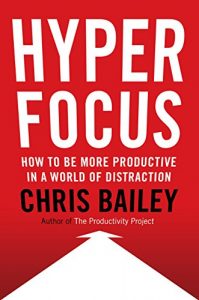
It reminds me of a study that happened in 2013, the Boston Marathon bombings. The study examined two groups of people. The first group of people watched six or more hours of news coverage about the Boston Marathon bombings and the second group of people ran in the marathon. They found that the group of people who had watched six or more hours of news coverage about the bombings were more likely to develop PTSD than somebody who was in the marathon and personally affected by it. These moments accumulate, these moments of distraction. It is so critical that we know what the stones are. We know what the sand is in our life and that we are able to distinguish between the two. I love that analogy because it speaks to the point that not all tasks in our work are created equal. Some allow us to accomplish ten times as much as others do. Mentoring a new employee that joins our team. We get more out of one minute of mentoring somebody new than we might in an entire hour of mindlessly checking our email or spending that time on social media.
When we pay attention to what is latest and loudest, like our attention is wired to do, we do the opposite of what is important. That awareness is so key. Also, it is a bigger idea than just that awareness. The single biggest predictor of fear and anxiety in our lives is how much time we spend watching TV talk shows and some news programs and these daytime shows. If you take all this together and you realize all of this paints a picture that not only it’s critical to pay attention to things that are more meaningful, more important, so that we can notice that meaning but also to up the quality of our attention because that means so much.
If we could sum up this idea of what you were describing, focusing on the things that matter and not getting sucked into stuff that is going to create PTSD, anxiety and fear. It is essentially the 80/20 rule, Pareto Principle, where you focus on the 20% that gets you 80% of the benefits or the rewards of the outcome that you are after.
Something that I highly recommend almost everybody on the planet do is, and it is similar to Getting Things Done where you get everything out of your head. It is that but taken up a little notch. I do not know if it made it to this point in the book in The Productivity Project. It is to make a list of all the activities you do over the course of a typical month. Every project you are responsible for, every activity that you do in your work and ask yourself, “If I would only do one thing on this list day in and day out, every single day, which one of these allows me to accomplish the most?” It gets beyond that busyness and gets you thinking about, “What am I here to accomplish? What am I here to do? What is central to my work?”
Then pick a second one. If you can only do two things day in and day out, what would you do? Pick a third one. Regardless of the industry, this is the fascinating thing about this exercise. I have guided quite a few people through doing it in talks and stuff like that. Regardless of the industry, after about three tasks, sometimes two and very occasionally four, your marginal productivity begins to fall off a cliff. Usually the things that are left, either support your work or they can be delegated to somebody else. Usually they cannot be eliminated. That is why you listed them in the first place, but some of them you can say no to. This is what is most critical to focus on throughout the day. It is such a simple activity.
I will create a challenge to our audience to do this because I read a lot of blogs and it’s like, “I want to become more productive. I am going to download this show about hacking and productivity and stuff and hopefully that by osmosis, it settles into my mind.” This is why you should listen to shows like this in the first place. Do this thing. Set aside 30 minutes tomorrow. Go into your calendar right now and block off 30 minutes to do this with a cup of coffee. This will be the best 30 minutes you spend this entire week because it will show you what is vital, what is so central to your work. This is what is important to focus on.
It is such a powerful exercise and it reminds me of a similar exercise that Warren Buffett recommends where you write down 20 or 25 goals. Do you remember the details around this?
I think he was talking to his pilot and his pilot said, “What is the key to your success?” He said, “Write down every single goal that you have.” It was something like cross off everything but three of them or one of them or two of them. It is that classical saying where you can have anything you want but not everything you want. It is so critical to identify. I would not even say it is the 80/20 rule. I think it is the 95-5 rule where we have 5% of our tasks that contribute 95% of everything we accomplish. There is so much busy work that we do so often over the course of the day. It is classic. You probably mention Parkinson’s Law on the show where our work tends to expand to fit how much time we have available for its completion. We have two or three hours of real, core, central work to do over the course of the day. Somehow, we spend eight or nine hours doing it all between chatting with people at the watercooler and doing email and social media.
Over time, distraction is not the problem; over-stimulating our mind is the problem. Share on XThis is not to say that we should not be connecting with other people because that is why we should work. We should work so that we can create conditions for a more meaningful life while being able to accomplish more both by traditional and non-traditional measures. Whatever you want to accomplish, that is why productivity should exist. Getting there, it is so critical to be cognizant of what is important but how much time you spend doing everything else. Usually people have more room to take on more tasks than they are already doing. This is something that I find with some of the folks that I coach as well. These are folks who are higher up in organizations where they identify their tasks. They make an effort to shrink everything else and tame distractions the rest of the time. They realize that they only have three or four hours of real work to do every single day.
More of us fall into this category than we will admit. This is what spurred the second book that I wrote after I finished writing The Productivity Project. I thought, “I’m still as busy after I shipped the book and after it came out and after it is doing well, but I have less to do. What is going on here?” It was that classic law called Parkinson’s Law where the work was expanding and it’s a sign. Maybe I should lower my speaking fee a bit so I can take on more and travel more and get these ideas out there. Maybe I should start thinking about hunkering down on a second book idea. Maybe I should open up the gates to do more coaching. I forget the exact things I expanded all the time but there were the core things to my work. I am so happy I did because your busy work level, when it is high, it is a signal that you do not have enough important things to do. It’s an uncomfortable thought but run towards that thought because it is so worth turning over in your mind.
I remember reading an article in HBR on how managers delegate and give too much time to the team members and thus Parkinson’s Law kicks in. You need to give an almost unreasonable deadline, always give deadlines, etc. That is a great article. It is not just relevant for delegating to others, it is relevant for managing your own time and focus and activities. Back to this Warren Buffett thing, the details around this where you write down your top twenty goals. You are writing them all down and then he springs it on you that you have to delete seventeen of those twenty, and you are not allowed to work on those seventeen goals that you have deleted. You are not allowed to start any kind of projects around them. They are only available to you after you finish your top three goals that are left. The very top ones that you are going to be focused on. It’s a similar concept to the books Essentialism and The ONE Thing where you have to focus your energy on just one thing at a time and this idea of multitask is a fallacy.
There are different levels that we multitask on too. The goals that we have overall, we try to do too much. Then there is a level below that. The projects we have, we take on too much. Then there is the multitasking in the moment, which is rapid task switching that makes our work about 50% longer because of that attentional residue. I think it was coined by Sophie Leroy. She found that when we switched things, we are always remembering a little bit and devoting a little bit of our attention to what we were previously doing. Because of that residue, things take about 50% longer. We do that at the moment as well. Because of this and it is human nature to want to do more, this is why we have capitalist markets that grow at a pretty good rate over the course of centuries and why we can invest our money so that it can grow. This mindset usually serves us pretty well but it is detrimental to our productivity when we take that same mindset to how many things we do at the moment, in the quarter and in general.
I learned this analogy from Carl White, an internet marketer. He describes how most people are building multiple bridges at a time and if the goal is to get traffic to go across that bridge or the bridges, a 90% built bridge is completely useless at that. Finish a bridge. Stop trying to spread yourself across ten different bridges at a time. That is a fool’s errand. I have made some progress in that. I still have not completely focused on one thing at a time but I will get there. You mentioned that you do coaching, you have coaching clients. I, as well, have coaching clients. Not very many because I can’t scale that. I am very selective about who I take on as I am sure you are. How does that fit into what you do in your week? Are you writing more books? Are you doing more experiments? Are you working on some next project like a TV show or something like that, and then fitting the coaching on the side? How does this all fit together?
My three things are writing, speaking and coaching. Those are the three things that I devote most of my time to. Writing, under that is research and experimentation because that is the process by which I create the end result. Writing, I find, done well, it is very little actual writing. It is 90% thinking about what you are going to write and then the other 10% is writing. Speaking, I do a bit of that. Coaching as well. I have always been resistant to having a big mission and vision for my business because I always think those things are a bit BS. I realize that having a central point that all of my work orbits around, is one of the best things that I can do and it is one of the best things I’ve ever incubated.
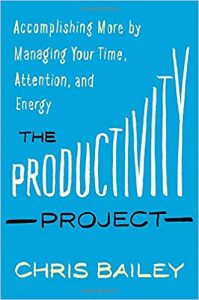
All of these different elements of the work that I do, my goal is to help other people live better lives. There are different levels of that. There is speaking which I can give people strategies for accomplishing more every day. Just in a talk that is fun because you get to see people and you get to see, “They did not like that idea but they loved that one. Maybe I should write more about that and explore that.” Coaching is very much that ground level. It does not scale and so I have not done it for a long time because of that. I realized I need that personal connection because I can see things through my lens and how I see the world and these end of one experiments. To get that end up, if I do not want to do traditional research, I have to give these strategies to executives, to people who run companies on a daily basis to see what sticks for them. To see what sounds good, to see what works for me because I researched this topic for a living. From the talks, from the research, from the sessions, you get to see what works and that is what I end up writing about in the end. It is fun in that way.
I feel blessed every single day to be able to write about productivity because ideally, the things and the suggestions that you are writing about end up creating a better book or article at the end of the day. It is circular in that way. It is something fun plus it is nice to have a human connection because I do not know if you find this. You do a lot of podcasts and things like that. You get to connect with people that way but writing is a very isolating thing. You spend a lot of time locked in an office. I have a nice office. I have a piano. I have a meditation cushion and lots of plants, but very few people. I have a turtle, Edward, who is basking on his rock in the tank. I find that personal connection helps the other elements of the work: writing, speaking and coaching. It is something that I thought a lot about. It is something that brings a lot of pleasure to me to help people out in that way.
What are you most procrastinating this month?
This month I am procrastinating on when my accountant asks for labeled statements for all my credit cards every quarter because it is easier for them to do bookkeeping but it is not essential so they do not need it. What it involves is going through all of my credit card statements and labeling, putting a little numerical code next to each one of them because my assistant can’t. She doesn’t know if a Chipotle order was for a meeting or a food expense when I was on a trip. Maybe I should carry a camera around. I have tried to find a way around this but I can’t.
I can give you the solution to that one.
Accountant voyeurism.
I do not think any of what you are describing to do because I have my business credit cards and I have my personal credit cards. If I am at a business thing, the Chipotle expense goes on a business card.
I have that as well.
Just because something is stimulating doesn’t mean it is important. Often, the opposite is the case. Share on XIf you let your bookkeeper figure out all the things that are on the business card, things that are obvious like Chipotle, no problem.
It is a lot of Amazon orders where it is like, “This was an equipment expense. This was a book expense that is research.” We are getting into the weeds but the bottom line, I am procrastinating on labeling each of them.
Those are good things to procrastinate because they are way below your pay grade.
I am reading books everyday instead of doing that.
Those are things that you should figure out a way to delegate. There are the four Ds: Delegate, Defer, Delete and Do. The last thing you want to do is Do. You want to figure out how many of these things that you are doing can be deferred, delegated or deleted. This is something you should definitely be delegating or deleting. I do not do this aspect of my bookkeeping. It is not a good use of my time. It is not in my zone of genius. It is up to my bookkeeper to go through all my credit card statements and do her very best job at categorizing everything. If she has to look up what that place is in Google, then she does that. If she needs to go on to my Amazon account with my password which she has then, so be it, she does that. I do not think this is a high value activity. What are you procrastinating that is a high value activity and you want to do this?
I have nothing.
I know that in your book, The Productivity Project, you covered the six triggers of procrastination. Do you want to briefly explain what these six triggers are and what you should do about them to procrastinate less on the things that are important?

This is fascinating and I will use labeling these receipts. By the way, do you have a good app for organizing receipts when you buy something? I am terrible at this.
I use Evernote. You have to have a proper methodology for using Evernote with tagging. A great structure for that is Charles Bird is an expert on Evernote. I interviewed him. He has 30,000 notes in Evernote. Any meeting he has, any phone call, any event where he is sitting in the audience at a conference or whatever, he is taking notes and they are going in Evernote and receipts as well and business cards.
Maybe I should do that.
Evernote has OCR capabilities so you can search what is on the receipt or what is on the business card if you’re a premium user.
It bugged me about Evernote where every time I signed in, they were trying to get me to upgrade and taking away features. It felt like they were greedy.
It is just the business. They need to make profit. My recommendation, use Evernote. Get the premium version because it is superior and you do need that OCR capability and just try this experiment. You are big on experiments so try a month of recording everything that is not a to-do, that is not a next action or project into Evernote including your receipts, business cards and stuff. What are these six triggers?
This is a fascinating study. One of the fun parts about writing the book was coming through all the research that I could find about productivity. Occasionally, you come across one of these studies where you see that the number of downloads for it is about only fifteen people. Usually the person who wrote the study as well as their closest colleagues has downloaded the thing. This study was one of those and it related to why we procrastinate on some things and not on other things. If you look at what our attention naturally is drawn to, we naturally pay attention to anything that is pleasurable, threatening and novel. On the other side of that weighing machine are the things that make us more likely to put something off.
Not all tasks in our work are created equal. Some allow us to accomplish ten times as much as others do. Share on XReceipts or labeling statements or even thinking about how you can delegate labeling the statements to your bookkeeper because you have so many accounts. These things they set off these triggers which are whether a task is boring, whether it is frustrating, whether it is difficult, whether it is ambiguous, whether it is unstructured, whether it lacks personal meanings. There is very little meaning in labeling these things. Whether it lacks intrinsic rewards. The process of doing it is not very rewarding in and of itself. You look at something like doing your taxes, if that is something that you do yourself. It is boring. It is frustrating. It is difficult. There is no meaning. It is ambiguous. It is unstructured. Sometimes there is intrinsic rewards when you get one of those pieces of software. You can see your refund tick up as you go through the process. It is entirely possible to make these tasks more pleasurable, more novel, more threatening. First of all, we can delegate them to somebody else so we do not have to think about them in the slightest but we can reward ourselves for doing it as well. Maybe for every minute you spend labeling your receipts, you put a dollar in a frivolous spending account that you blow on a big restaurant meal or whatever gives you a lot of meaning.
If something is frustrating, you can make a game out of it. How can you finish your taxes in 30 minutes or something along those lines? There are ways that you can restructure a task to make it significantly more attractive. It is this fascinating thing. This is such a key to productivity is this awareness of what we are procrastinating on. This awareness of what we are putting off. This awareness of what is more attractive to us in the moment than what we truly want to be doing. I love that strategy because it not only lets you dissect why you are putting something off but it lets you make it more attractive to yourself as well.
That was a powerful part of the book that I got a lot out of. Reverse engineer the things that I was procrastinating and how to make them more enjoyable and more rewarding because they did trigger multiple of those triggers.
What’s the thing that you put off besides getting a hair transplant?
I put off going through my things database which I used my Cultured Code. That’s where all of my next actions, projects and everything are. I have over 5,000 things there. Most of them are unprocessed. I have not figure out the context. I have not set a deadline. I have not teased out whether it is a next to action or a project. It is overwhelming to think of doing that so I could schedule an hour to make a small dent into that and I will blow that off. That is something that I am procrastinating.
Something else that works well because procrastination is this purely emotional and visceral reaction to something we do not want to do. There is no logic embedded within the construct of procrastination whatsoever. Listing out all the costs of putting something off. If you list the financial cost, the economic costs, the social costs, the productivity costs, the cost of not staying on top of everything or things slipping through the cracks. That is another powerful way. That fires up the logical centers of your mind namely your prefrontal cortex to overcome that lizard brain response to something that you do not want to do.
We are going to send the audience to get your books, The Productivity Project and Hyperfocus but where else can we send them online? Do you have any online courses? You occasionally take on coaching clients etc. Where do we direct everybody to?
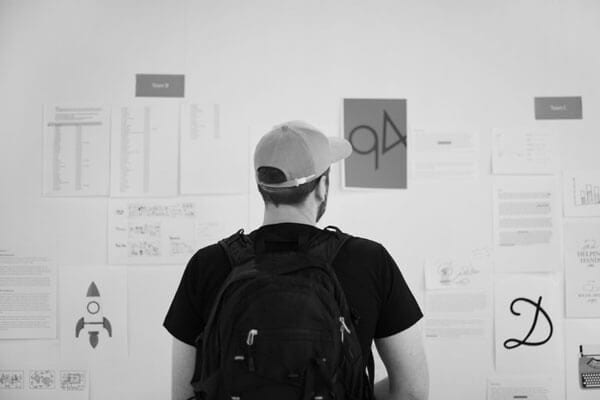
My site is ALifeOfProductivity.com. That is where I write semi occasionally. I’m taking a break after the big book launch because it is pretty crammed. I do not think we treat ourselves enough after our biggest projects and accomplishments. I just got rid of the newsletter pop up on the site. It’s slightly less annoying to visit there now. That is where I write and my books are The Productivity Project and Hyperfocus. They are out in 22 languages now and English happens to be one them. You can pick out those as a physical or whatever your favorite format is. Thank you for reading.
This was a real joy to have you on. After reading so much of The Productivity Project book, I was like, “This is a guy I have to have on my show.”
This guy is a total weirdo like I am.
We are all weird in a wonderful way. Thank you so much, Chris.
Thank you.
Thank you to our audience. Take some action and do the thing that Chris asked you to do.
List everything in your work that you do over the course of a month and pick the one thing that you want to spend all day on that lets you accomplish the most. Pick the second one, the third one. This stuff is what you should be doing day in and day out. Everything else sucks. It is draining your productivity, get rid of it, delegate it if you can. Shrink it if you can and focus on what’s important.
Go check out the various tools and things that we discussed in this episode. Thank you so much.

